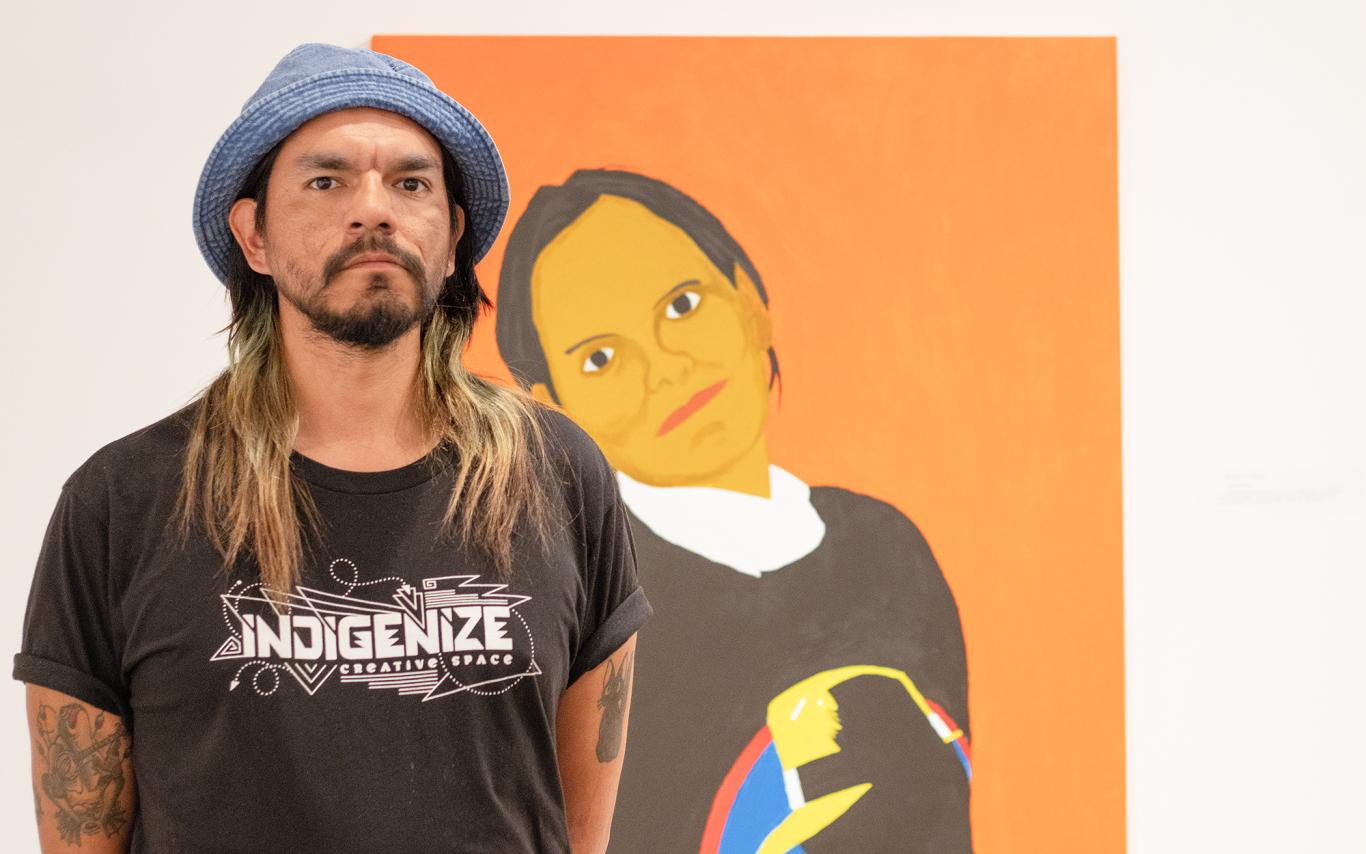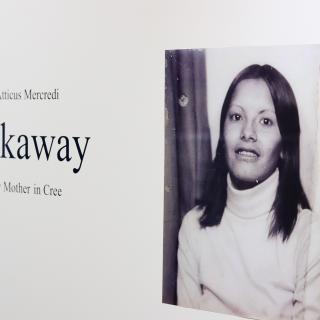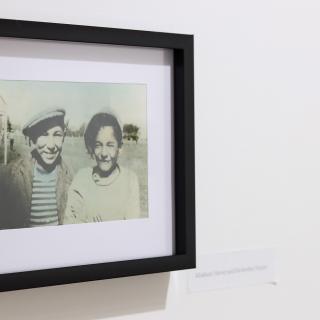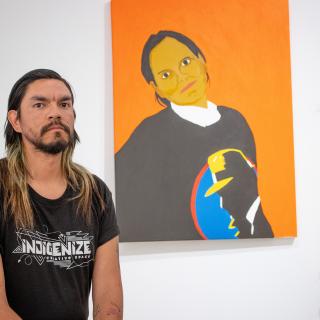Atticus Mercredi pays tribute to his mother with exhibit
Atticus Mercredi doesn’t remember his mother.
What he knows, he learned from his siblings. His mother Glenda Faye Ledoux, from the Mistawasis Cree First Nation, was a resilient woman. She was tough, tenacious and wasn’t afraid to stand up for herself. She was a residential school Survivor and struggled with addiction because of colonial trauma. Her 12 children were taken from her by social services, and she fought to get them back up until her death in 1999. She died from complications of stomach cancer at 41.
“I read in one of her letters that she was going to become an addictions counsellor and wanted to go to school, probably around her late 30s. She was feeling very optimistic,” he says. “Near the end when she learned she had stomach cancer, I think she gave up on everything.”
Atticus, a VIU Visual Art student, pays tribute to his mother with the Nikaway My Mother in Cree exhibit. It ran at VIU’s View Gallery this May and included photographs of his family, a video of his father and a painting of his mother. Atticus created the painting of his mother based on an old 35-millimetre photograph of her. It’s a significant image to Atticus because his mother is pregnant with him in the photo.
The exhibit shares the story of Atticus’ birth family, which he’s been working to reconnect with. He also wants to raise awareness about what Indigenous women have been put through because of colonization and how the child welfare system in Canada impacted them.
“The story of my family’s history is just one of many throughout this country. A lot of Indigenous people just don’t know their family members or are separated,” says Atticus. “There are a lot of Indigenous families that have been broken up because of colonization, which is the history of our country. I think if colonization never happened maybe I would have grown up with all my siblings and my mom.”
Atticus and his siblings were placed in the foster care system, and many grew up in settler families.
“She would do everything they would say and fill out all the forms and work really hard and then they would just raise the bar and make it harder for her,” says Atticus. “My older sister said in some of the letters she would get from Mom she would be really upset and down on herself. You just give up pretty much because they made it impossible.”
He’s struggled with mental health and sadness and says he feels it is something he inherited through generations of trauma. Atticus and his siblings are trying to break the cycle and he says a lot of nephews and nieces are doing amazing things with their lives.
In the process of creating the exhibit, he met his birth father Joseph Mercredi. His father is Chipewyan Dene, from Fort Chipewyan in Northern Alberta, and is also an artist. His father is also a residential school Survivor.








